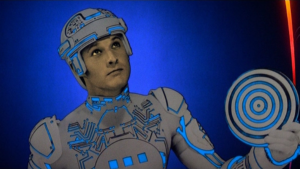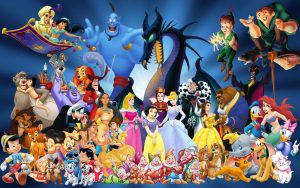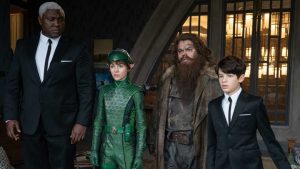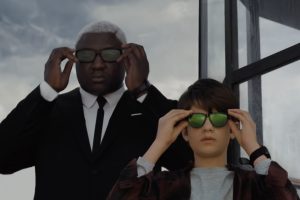In times of crisis, it can be comforting to know that not everything has been canceled or delayed indefinitely. The Little Mermaid live-action remake may not be sailing into port any time soon, but it is still coming to a theater near you, and today we’ve learned that a big name may have just joined the cast of the fishy fairytale. The brilliant folks over at The DisInsider broke the news that singer/songwriter Kacey Musgraves has been circling the role of Vanessa in The Little Mermaid, and that, while she’s not locked in just yet, she has spoken with Disney executives via Zoom call to discuss the subject.

Musgraves as Vanessa is an unexpected casting choice that is sure to provoke renewed interest in the film – but then again, so was Halle Bailey as Ariel and Melissa McCarthy as Ursula: and for a moment there, so was Harry Styles as Eric until he passed on the coveted role. Like Halle Bailey, she is better known for her career in music than in movies: she is a nine-time Grammy nominee, and six-time winner, and one of the most well-known female country singers working today. But she’s also a frequent collaborator with Disney – just last year, she performed All Is Found for the closing credits of Frozen II…the song is somewhat forgettable, and I don’t understand why she wasn’t chosen to sing something more powerful like Show Yourself, but don’t get me started on the ways in which that song was robbed. Anyway, she’s established a relationship with the studio, and that’s clearly paid off.
For those who have been living under a seashell for the past thirty years, Vanessa is the human disguise of shapeshifting sorceress Ursula in The Little Mermaid, who shows up for a couple of scenes near the end of the movie to try and steal Eric away from Ariel and prevent the mermaid from scoring a true love’s kiss. Vanessa uses Ariel’s stolen singing voice to easily win over the prince (I’ve always disliked Eric, despite the fact that this technically isn’t his fault), and the two hastily arrange a marriage on the prince’s ship – a marriage which is interrupted by Ariel and her animal sidekicks when they overhear Vanessa singing about her evil plan (when will Disney villains ever learn?). Physically, the character of Vanessa matches Kacey Musgraves pretty perfectly. But there is one problem which I hope is resolved.
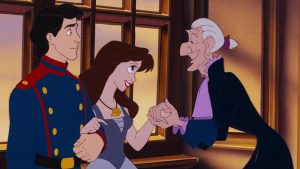
Vanessa barely ever sings. And while Kacey Musgraves is still a win either way, I can’t help but wonder why Disney would be focused on her for the part if they don’t plan to expand the role of Vanessa and give her more songs beyond the two she has in the original animated film (and when I say she has two, I really only mean she wails beautifully on the beach when seducing Eric and then has two or three lines where she’s maybe singing, maybe just talking melodically about her evil plan). But Howard Menken, who is doing the music for The Little Mermaid, has only written four new songs that we know about – and according to The DisInsider, these consist of a solo number for Eric (he doesn’t need one, but whatever), a duet for Eric and Ariel (have I mentioned I don’t like Eric?), a song for Scuttle the seagull (who will be voiced by Awkwafina, so I’m letting this otherwise ridiculous decision slide), and a solo number for…King Triton, of all people. It’s possible Menken will write additional songs as production gets underway, but for now this is what we know. No new solo numbers for Ariel or Ursula, nothing new for Sebastian, and nothing new for the character of Vanessa. So as of right now, unless Disney simply plans to fill out Vanessa’s Song (the evil plan song: it doesn’t even have a real title, it’s that short) with more lyrics, then I don’t see the reasoning behind Kacey Musgraves’ casting, though I am still excited for her.
What do you think of this new casting for The Little Mermaid? Do you hope to see Vanessa’s role expanded and/or new songs written for her? Share your own thoughts, theories and opinions in the comments below!

